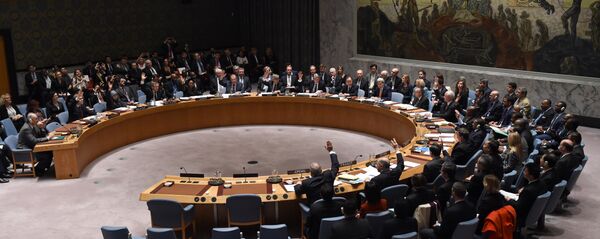"I do believe that the approach should be different. I am not sure we can find some magic plan to solve all the problems in immediate negotiations. We have to start building peace brick by brick," Edelstein said on the sidelines of the Mediterranean Dialogues (MED) forum in Rome when asked to comment on Trump's peace plan.
He added that in order to resolve the decades-long dispute it was necessary to persuade both parties that the cooperation would benefit all.
READ MORE: Europe Split Over UN Global Compact for Migration — Politicians
"Right now, even if we impose some kind of deal, I am not sure it will hold… I am not sure that you can find some scissors and cut a piece of paper and then everything becomes fine. It is a long process," Edelstein argued.
Trump has long promised to take steps toward settling the long-standing conflict between Israel and Palestine. White House Senior Adviser Jared Kushner and Special Representative for International Negotiations Jason Greenblatt have been working to put together a US plan that could bring peace to the region.
On Israel's Refusal to Sign UN Migration Pact
Commenting on the decision of the Israeli authorities to abandon their plans for signing the UN Global Compact for Migration, Edelstein told Sputnik that it can be explained by the strong influx of migrants to the country.
READ MORE: Australia Refuses to Sign UN Global Migration Pact, Along With US, Austria
"In our whole area we are the only attractive country for migrants. And hence that influx that came in from some countries really changed certain Israeli cities. And we do not want to be in a situation when we sign an international charter and then do not live up with it. That's why the prime minister decided that under present situation we are not joining this effort," Edelstein said on the sidelines of the Mediterranean Dialogues (MED) forum in Rome.
He indicated that migrants who failed to find a shelter in other Middle Eastern countries automatically moved to Israel, which causes resentment of the Israeli authorities.
"If countries will cooperate with Israel and develop technological, agricultural and other cooperation, life will become better. There will be less migrants at least in our area… Israel has a lot of experience in absorbing, getting migrants… so we are offering our know-how to any country that is dealing with absorbing migrants," Edelstein stated.
The Global Compact for Migration, scheduled to be adopted at an intergovernmental conference in the Moroccan city of Marrakesh on December 10-11, represents the international community's attempt to establish a global common approach to all aspects of international migration. The paper comprises 23 objectives for better managing migration at local, national, regional and global levels. A number of countries, including Austria, Hungary and the United States have already abandoned their plans to sign the agreement.




